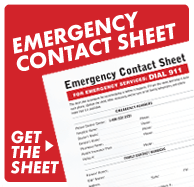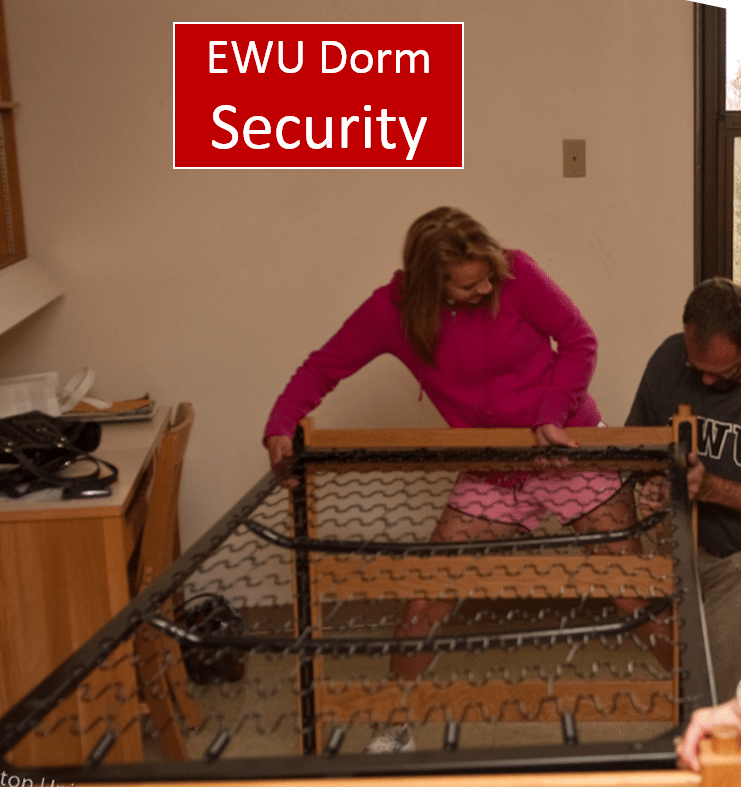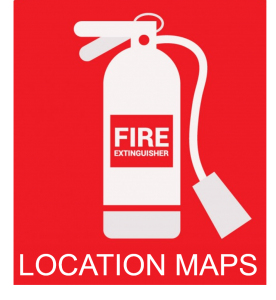Building Safety Information
Safety information for the residence halls can be found here. The safety information includes:
- Building address
- Building Captain and/or Floor Captain(s) names and contact numbers
- Emergency contact list
- Locations of fire extinguishers and AEDs
Address:
922 Washington Street
Cheney WA, 99004
Building Captain: Courtney Sollars – 509.359.2452
On-call cell phone: 509.979.6589
Fire extinguishers are located in the stairwells.
- North has extinguishers on the basement, 1st, and 2nd floor
- North has an extinguisher in the storage area

Address:
106 N. 9th Street
Cheney WA, 99004
Currently Recruiting – Office: 509.359.4443
RAs and CAs, use this form to record your weekly fire extinguisher inspections. Turn the form in monthly to your Residential Life Coordinator.
Fire & Emergency Evacuations
Everyone must evacuate the building when the fire alarm goes off!
Before an evacuation:
- Know two ways out of every location you go to
- Practice your evacuation routes for locations you are frequently in (like your dorm room or class rooms)
- Never disable or remove batteries from smoke alarms
- Don’t hang things, cover, or block smoke alarms, fire alarms, or sprinklers
During an evacuation:
- When the fire alarm goes off, exit the building using the closest exit
- When you are outside, check in with your RA/CA so that they know you made it out
- Move at least 100 feet away from the building
- Make sure you don’t block emergency response vehicles or emergency responders from reaching the building
- DO NOT reenter the building until an authority figure says it is safe
Staying Healthy
Dorm life has some special considerations because there are so many people living in close proximity and sharing the same spaces.
To stay healthy, Housing and Residential Life recommends that you:
- Obtain immunizations as recommended by your family physician.
- Always wash your hands with soap and water after using the restroom.
- Don’t drink from someone else’s cup or drink.
- Go to a medical facility if you have a sore throat or a prolonged illness.
- Notify Housing and Residential Life Staff if you have an extended illness.
CDC on College Health & Safety
The Center for Disease Control (CDC) has some useful information for staying healthy and safe in college.
“There are all kinds of tests in college–beyond those you take for a grade. Examples include
- Social and sexual pressures.
- The temptation of readily available alcohol, drugs, and unhealthy food.
- The challenge of getting enough sleep.
- Stress from trying to balance classes, friends, homework, jobs, athletics, and leadership positions.
The following tips and information can help you stay safe and healthy in college.”
Security

All doors to the residence halls are locked 24 hours a day. To discourage unwanted visitors from entering the building, it is important that students do not prop exit doors open.
To stay safe, Housing and Residential Life recommends that you:
- Ask people you don’t recognize if they belong in the building.
- Make sure overnight guests register at the hall office.
- Keep your room door locked at all times.
- When living on lower floors, close and lock your windows while you are out.
- Notify Housing and Residential Life Staff if you see something suspicious.


